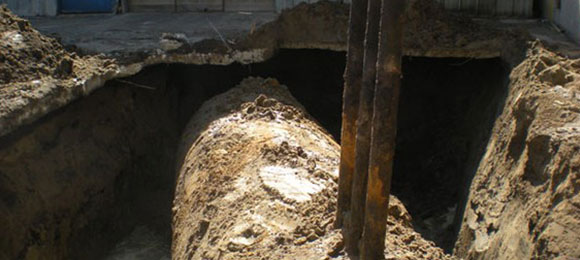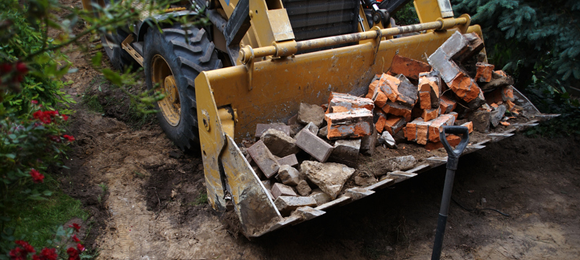
Updated December 21, 2023
For many projects involving renovations or additions to a property, it's necessary to obtain a permit from the local government before the work gets started. Doing so helps the city keep track of your home's structure and integrity while also allowing inspectors to check for issues in the future.
In addition, permits allow you to have proof of building code compliance when you go to sell or refinance your home. Buyers and lenders want to know that your remodels comply with local building codes.
Not obtaining the necessary permits could result in having to remove the entire addition or improvement and rebuild it with the proper paperwork in place, causing significant disruptions to your project timeline and overall cost.
So, how do you know which projects need permits?
A majority of contractors will know which permits are needed for which projects, but it’s always a good idea for homeowners to educate themselves in order to avoid any issues.
Let's take a closer look at some of the projects that will usually require at least one permit:
Find a demolition contractor in my area
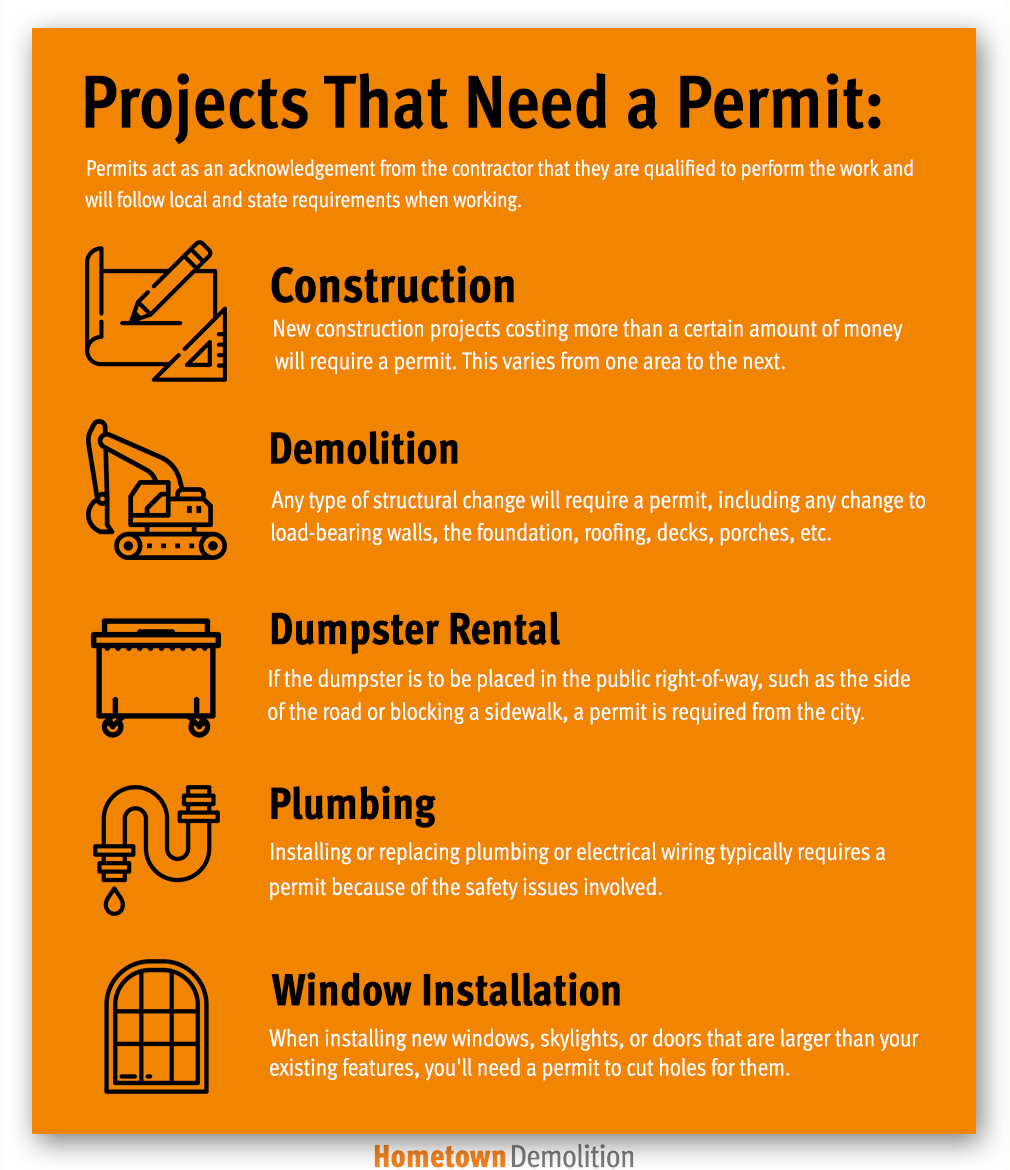
Demolition or Construction
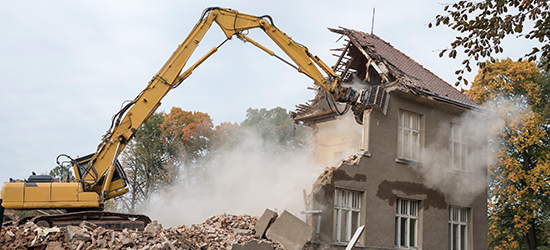
Any type of structural change will require a permit, including any change to load-bearing walls, the foundation, roofing, decks, porches, etc.
Complete demolition of a structure will almost always require a permit. Interior demolition, on the other hand, isn't quite as stringent. If your interior demolition work is minimal and doesn't involve any load-bearing walls, you may not need a permit. So, be sure to contact your local building department to get clarification.
New construction projects costing more than a certain amount of money will require a permit. This varies by state; for example, some states require a permit for projects costing more than $5,000. This typically includes projects like additions, remodels, repairs, upgrades, etc. and applies to detached structures, too. However, construction under a certain square footage may not require a permit. Again, this varies by state.
Getting in touch with multiple demolition companies in your area will not only give you a better understanding of the rules and requirements in your area, but it will also give you an idea of what a fair price for your project is.
Find locally-owned and operated companies in your area, read real reviews from verified customers, and request free quotes from multiple contractors by searching on Hometown. We make it easier than ever to compare different companies' pricing, customer service, and availability.
Learn more:
- How to Compare Quotes and Hire the Best Demolition Company
- Demolition Project Planning: A Step-by-Step Guide to Ensure a Successful Outcome
- Demolition vs. Renovation: Making the Right Choice for Your Property
- Understanding the Different Types of Demolition: Selecting the Right Approach
Plumbing or Electrical
Installing or replacing plumbing or electrical wiring typically requires a permit because of the safety issues involved.
Smaller projects—minor repairs and light fixture installations—may be the exception to the rule. It's a good idea; however, to always err on the side of caution.
Most projects that require a permit also require that the work is completed by a licensed and insured contractor, so be sure to do your due diligence before diving headfirst into a DIY plumbing or electrical project.
Window Installation
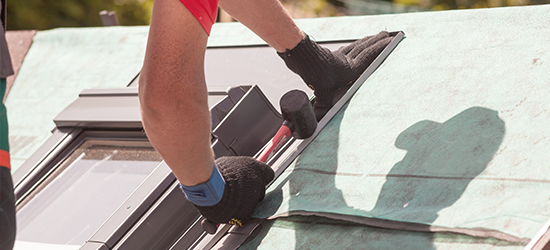
When installing new windows, you'll need a permit to cut holes for them. The same goes for new doors and skylights.
Installing new windows is considered a renovation or alteration, meaning you're altering the original structure and therefor will require a permit to do so.
The exception to this is if you are only swapping out the window sashes, or movable parts, and not the entire window.
Renting a Dumpster
There are situations where it's necessary to obtain a permit for a rented dumpster. If the dumpster is to be placed in the public right-of-way, such as the side of the road or blocking a sidewalk, a permit is required from the city.
However, no permit is typically required when the dumpster is placed on private property, such as your driveway or yard. This depends on where you live and your local regulations, so be sure to speak with several dumpster rental companies and your local government to confirm whether or not your dumpster rental placement will require a permit or not.
Use our sister site, Hometown Dumpster Rental, to find local dumpster rental companies that service your area. Request free quotes and find the best company with the availability you need and the customer service you deserve.
Learn more about renting a dumpster:
- Do Dumpsters Placed on the Driveway Require a Permit?
- How Many Dumpsters Do I Need?
- Dumpster Rental Dos and Don'ts: Tips for a Hassle-Free Experience
